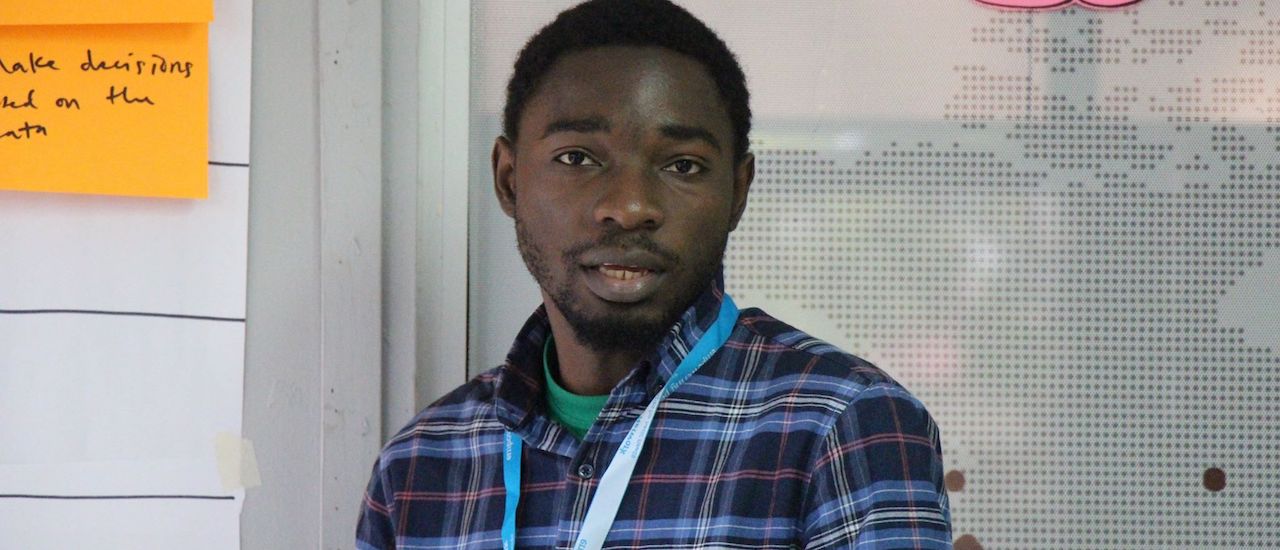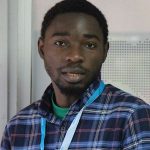Twenty-six-year-old software engineer Akah Harvey N L has fun building things and sharing his knowledge with local communities in Cameroon. While an undergraduate, Akah took part in the Google Summer of Code, giving him the opportunity to develop an application for one of the largest software organizations in the world. He is now a code reviewer for the online learning platform, Udacity, and leads software development training at Seven Academy in Cameroon. Akah is a 25 under 25 awardee and a cofounder of Traveler, a road safety and emergency app.
I am a software engineer and it’s hard to talk about anything I do without talking about the Internet. Beyond using the Internet for communication – reducing the distance between people with a speed that’s yet unrivaled – lies the gamut of useful services that help me accomplish my day-to-day tasks, like running client-server applications, downloading tools for my work, synchronizing software projects, collaborating on global impactful software projects with people I have never met, mentoring people online who are learning how to code on MOOC platforms, and even traveling the world. The ways in which the Internet simplifies peoples’ lives is difficult to accurately quantify. From social media to education, science, and research, the Internet is now considered one of the most significant inventions of humanity after fire and the electric lamp.
The Internet establishes a level platform for everyone, irrespective of race, gender, or age to express their creativity in ways that were, not so long ago, difficult to imagine. It offers limitless opportunities. But it’s important going forward that we educate people, as skills become more technical and the future of work changes. I have had the privilege of working with people from the largest software foundations in the world and their wisdom and guidance were invaluable in shaping the way I approached learning technology. It made it so much easier for me to understand the world I live in and to be able to enjoy sharing that knowledge with literally anyone willing to learn.
Everyone should learn about technology. It opens one’s mind to a whole new set of possibilities and can unlock hidden potential beyond our wildest imaginations.
The first step is for people to gain consciousness of their environment. Engineers, manufacturers, and developers need to be conscious that they have a moral obligation to build tools that save, not hurt. The very foundation of the Internet is violated when we fail to implement basic user privacy rights. Privacy and security should be built in by default. And users need to be aware of the long-term effects of upcoming technologies and how they are expected to be prepared. Read the Terms & Conditions. Read the updated privacy policy messages they see at the bottom of their screen. Both parties have a role to play in achieving a better society online.
It all starts, however, with keeping the Internet free and as open as possible for the less privileged to afford. Cost and distribution of bandwidth in Africa are still the most limiting factors for Internet access.
When the Internet was shut down in the country, we were developing the roadside safety app, Traveler. It made us realize how badly we needed to include a failsafe in our system to ensure we were not crippled during such events. And it presented some real challenges; finding out what could be achieved using different types of connections, and the amount of information being processed in real time. It’s hard to conceive that the absence of basic Internet connectivity could still be an issue in the 21st century. But that is how it is in Africa. Hopefully we will see improvements, major stakeholders who are interested in the development of our continent.
We are all on this road together. Stop and ask for help on your journey. Learn as you go so that you can empower those coming after you.
Visit #CountMyVoice and help build an Internet that’s for everyone!

